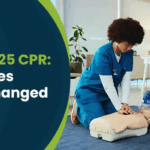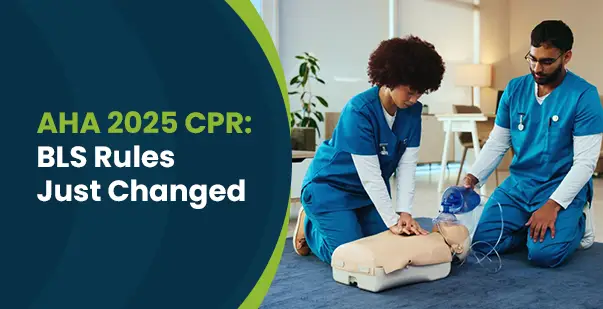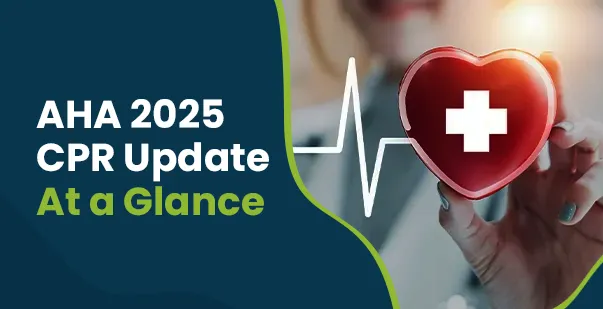Do you want to stay calm and help people during a medical emergency, but something inside you makes your hands and feet go cold? Fear lays the foundation stone of the inability to help others and can stem from various reasons. However, you only need knowledge of CPR to help save someone suffering from drowning, respiratory distress, or cardiac arrest. This article looks into the need for CPR, five fears of CPR, and methods to overcome them. By the end of this article, you can confidently help others during medical emergencies.
Which ailments need CPR?
Cardiopulmonary resuscitation (CPR) is for individuals experiencing sudden cardiac arrest or airway issues. CPR helps to maintain blood flow and provide oxygen to the body’s vital organs. It helps regulate blood flow within the body until the medical team arrives. A patient might need CPR in the following situations:
- Cardiac Arrest: During a cardiac arrest, the victim’s heart stops beating, leading to the absence of blood circulation. With no blood reaching the organ, they become oxygen-deprived, leading to failure and eventually death.
- No Pulse or Breathing: If someone is unresponsive, not breathing, and has no pulse, CPR can restore circulation and oxygenation.
- Drowning: Drowning causes the lungs to stop, and hence, blood oxygenation ceases. This chain of incidents leads to airway obstruction and may cause cardiac arrest.
- Choking: In some cases, severe choking can lead to unconsciousness and the need for CPR.
Get Certified with Our Online CPR Certification Course?
Learn CPR skills that make a real difference.
Can anyone perform CPR?
Anyone can perform CPR during an emergency if lives are at stake. However, people should receive proper training in CPR techniques. Training ensures you learn the correct procedures and can perform CPR safely and effectively. While it may seem obvious to try and help a person in need, only a few people come forward to administer CPR. This hesitation stems from some fears people may have about performing CPR.
5 fears of CPR rescue
People may have various fears or concerns about performing CPR. Here are the five fears:
- Fear of Doing Something Wrong: You may worry about not knowing the proper technique. The fear of making an incorrect move keeps many people from coming forward and helping those in need.
- Fear of Legal Consequences: CPR is a technique that could differentiate life from death. Bystanders fear trying CPR as they are often unsure of the consequences. Thoughts like, “If the person dies, will I be held accountable? Often crosses their minds.
- Fear of Disease Transmission: CPR involves touching an unknown person and delivering rescue breaths. People fear the transmission of unknown diseases through these mediums, and this lack of knowledge often becomes a barrier. However, the risk of disease transmission during CPR is generally low.
- Fear of the Emotional Impact: Not everyone dares to face a medical emergency. Some fear the sight of blood, while others freeze at the idea of death. This emotional barrier of ten prevents people from approaching an unconscious person and giving CPR.
- Physical Intimidation: The physical aspects of CPR, including the need for chest compressions and rescue breaths, can be physically demanding and intimidating. Some people may worry about causing harm or not having the strength to perform effective chest compressions.
How can you overcome fears to save lives with CPR?
Here are some steps to help overcome fears associated with performing CPR:
- Get CPR Training: With the proper CPR training, you can develop the confidence to treat patients effectively. It will help reduce the fear of doing something wrong and enable you to save lives.
- Understand Good Samaritan Laws: Can you be sued for performing CPR? It is a common question people have about CPR. But many places follow the Good Samaritan Law. It protects the bystander, assisting in medical emergencies in good faith. Once you know the law, you can help people without fear.
- Focus on Hands-Only CPR: If you find giving rescue breaths intimidating, use hands-on CPR. This technique uses only chest compressions and eliminates rescue breaths. It works best for helping strangers and people in hospital settings who could carry diseases.
- Join a Community Response Training Program: If you fear the sight of death yet want to help people, you should consider joining a community response program. Practicing with others in a supportive environment can boost your confidence and help you break your mental barriers.
- Practice Regularly: You must practice your skills and ensure you stay on top of any updates in the field. With training, you will build muscle strength to deliver impactful chest compressions. Practicing also ensures you can recognize signs of cardiac arrest and provide immediate assistance.
Learn CPR. Save Lives. Get Certified Online.
Master essential CPR techniques and get certified today.
Conclusion
The above-given fears are common, and anyone could face them, so do not beat yourself up. You can build confidence and fine-tune your CPR skills by following these steps. With regular practice, you can eliminate your fear of CPR and save the lives of your loved ones.









